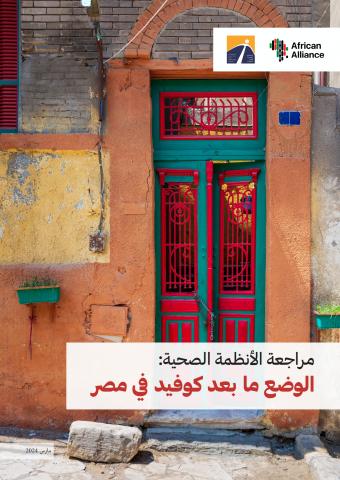New reports shed light on post-COVID healthcare quality in Egypt, Morocco & Tunisia
Today, the Egyptian Initiative for Personal Rights (EIPR) in partnership with the People's Vaccine Alliance Africa (PVA Africa), launched three new reports evaluating post-COVID health systems in Egypt, Morocco, and Tunisia.
The three analyses aim to acquire a better understanding of the effects of the pandemic on the respective healthcare systems and highlight the gaps that need to be filled to strengthen them.
Months of research and collaboration have revealed the specific interventions that would help Egypt, Morocco and Tunisia to build health systems that can deliver universal healthcare coverage and respond to future health crises such as pandemics.
“It’s clear that no country was spared from the effects of chronic under-funding in public health infrastructure going back decades,” according to the EIPR’s director of research, Karim Ennarah. “For us in this region, those problems were compounded with other systematic inequalities and challenges such as difficulty in retaining medical professionals and lack of data transparency.”
Tian Johnson, African Alliance founder and strategist says the reports are a reminder that “global health is not truly global if African voices, realities and aspirations are not at the centre of the discussion”.
“At the core of this work,” Johnson continues, “is an exercise in solidarity. This collaboration further solidifies the urgent need to secure the health, dignity and justice that is the birthright of Africans, in all of our diversity.”
A major strength of these three reports is that they were specifically designed to address the shortage of high-quality, up-to-date health systems data in North Africa.
“It was crucial for us to fully grasp the extent of our decline in order to gauge the level of commitment and action required to enhance healthcare systems both before and after the impact of COVID-19” explains Barrack Owino, who leads the People’s Vaccine Alliance’s Africa chapter.
The EIPR's research team measured each country's health system against epidemic preparedness metrics and the World Health Organisation's health system building blocks metrics. Then, they consulted a panel of 8 to 10 experts from various fields in each country who gave their perspective on the reality in clinics, hospitals, and communities.
EIPR health researcher Ayman Sabae explains: “Although the resources and healthcare infrastructure may differ, the commonalities we see today in the contexts of the 3 countries revolve around governance structures, data management and accountable management of resources.”
Key findings include:
-
Tunisia: Budget problems already plagued Tunisia's health system before the COVID-19 pandemic hit, resulting in a general downward trend in its functioning. Our review found that the negative trend has continued after COVID-19.
-
Egypt: As COVID-19 hit the world, Egypt has taken its first steps towards the roll-out of a universal health coverage scheme. Several positive improvements took place within the context of the new healthcare coverage scheme. Yet, we found an apparent deterioration, particularly in the healthcare workforce, healthcare spending, and the availability of reliable data.
-
Morocco: Despite facing challenges aggravated by the impact of the COVID-19 pandemic, the trajectory of the Moroccan healthcare system until 2022 has shown mixed trends across various health system building blocks. Economic crises, budget shortages, and the effects of the pandemic have played significant roles in shaping these trends.
PVA Africa and the EIPR are hosting a discussion about the reports in Cairo today, the 17th of April.
The event live-stream is on the EIPR Facebook account. Join the debate here from 12:00 GMT+2.
Report summaries are available in English for each country on the following links:
The complete reports are available here. They're available in English, French and Arabic.
For more information contact:
EIPR: Ahmed Noureldeen anoureldeen@eipr.org
African Alliance: Joan van Dyk joan@africanalliance.org.za




